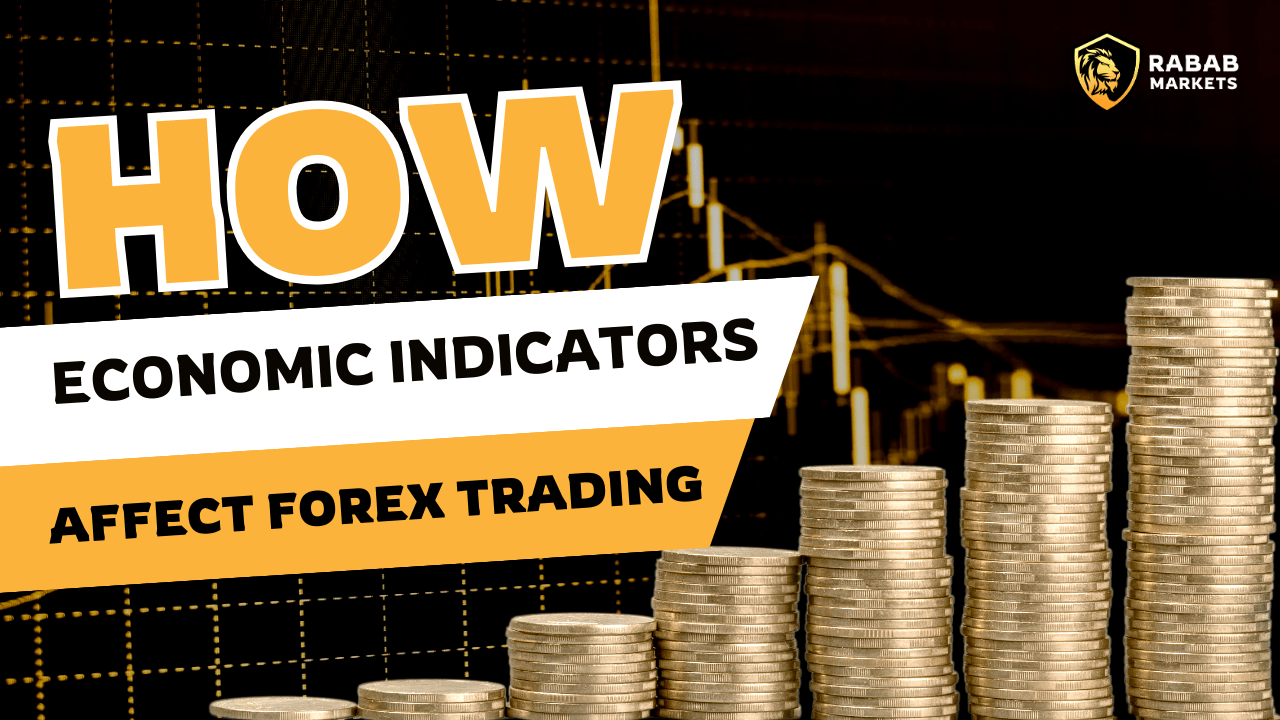
How Economic Indicators Affect Forex Trading | Rabab Markets
In the fast-paced world of Forex trading, understanding how economic indicators influence currency markets is essential for making informed decisions. At Rabab Markets, we believe that staying updated with the latest economic data is key to success in the Forex market. In this blog, we’ll explain how key economic indicators can impact currency prices and what traders need to watch out for.
1. Interest Rates and Central Bank Decisions
Interest rates are one of the most important economic indicators in Forex trading. Central banks, such as the Federal Reserve (U.S.) or the European Central Bank (ECB), set interest rates to control inflation and stabilize the economy. When central banks raise interest rates, it often leads to a stronger currency, as higher interest rates attract more foreign investment. Conversely, when interest rates are cut, the currency may weaken.
Forex Tip: Pay attention to the central bank’s monetary policy decisions and statements. A hike in interest rates could cause a significant appreciation in a currency.
2. GDP Growth Rate
Gross Domestic Product (GDP) measures the total value of goods and services produced in a country. A strong GDP growth rate generally signals a healthy economy, which could lead to an appreciation of the country’s currency. Forex traders closely monitor GDP reports to predict long-term currency trends.
Forex Tip: Positive GDP data typically strengthens a nation’s currency, while poor GDP growth can weaken it. Keep an eye on quarterly GDP releases from major economies.
3. Unemployment Rates
The unemployment rate reflects the health of the job market and the overall economy. A high unemployment rate often signals economic instability, while a low unemployment rate indicates a robust economy. Forex traders use this data to gauge the potential for currency appreciation or depreciation.
Forex Tip: A low unemployment rate tends to strengthen the local currency, while high unemployment may weaken it. Watch for monthly job reports like the U.S. Non-Farm Payrolls (NFP) data.
4. Inflation and Consumer Price Index (CPI)
Inflation measures the rate at which prices for goods and services rise over time. The Consumer Price Index (CPI) is one of the most widely used inflation indicators. High inflation can lead to a decline in currency value, while low inflation typically supports a stronger currency. Central banks often adjust interest rates based on inflation levels, which further influences currency markets.
Forex Tip: A higher-than-expected CPI can result in a currency strengthening, as markets anticipate that central banks may raise interest rates to combat inflation.
5. Trade Balance and Current Account
A country’s trade balance (exports minus imports) and current account reflect its economic relationships with the rest of the world. A surplus in the trade balance generally leads to a stronger currency, as it indicates that more foreign buyers are purchasing the country’s goods and services. Conversely, a trade deficit can put downward pressure on the currency.
Forex Tip: A trade surplus supports currency strength, while a trade deficit can weaken it. Watch for monthly trade balance data releases from major economies.
6. Political Stability and Economic Data
Political events, elections, and economic crises can have a dramatic effect on Forex markets. Uncertainty around elections, government policies, or economic stability can lead to currency fluctuations. Forex traders often assess political risk when making decisions.
Forex Tip: Stay informed about geopolitical developments. A stable political environment tends to support a stronger currency, while uncertainty can cause volatility and currency depreciation.
At Rabab Markets, we understand the importance of keeping up with economic indicators to make well-informed Forex trading decisions. By understanding how factors like interest rates, GDP growth, unemployment, and inflation affect the markets, traders can better predict currency movements and improve their trading strategies.
For more insights and expert Forex advice, visit our website at rababmarkets.com. Happy trading!


